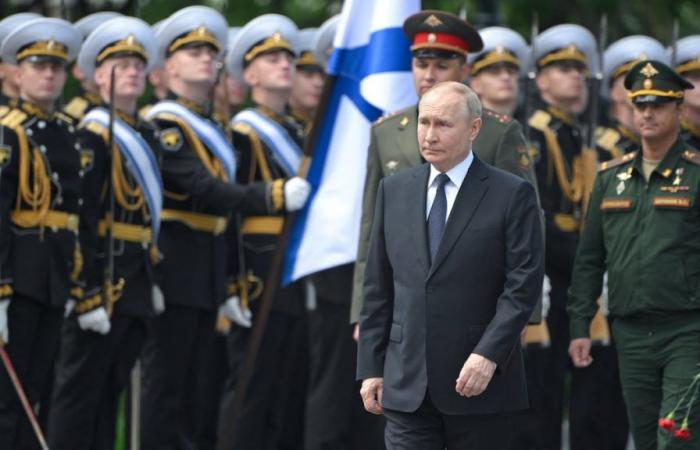A few days ago, President Gabriel Boric referred to the position that a part of the left, communist and Frente Amplista, has adopted regarding Russia’s invasion of Ukraine. President Boric’s position could not be clearer: it is an invasion without any justification, which does not respond to ideological molds, but to imperial interests. In the words of the president: “The fact that a country with an imperialist, expansionist spirit, invades another, flagrantly violating international law and wants us to normalize the appropriation of territory is something simply unacceptable and therefore we have to raise our voices and say: ‘Not this.'”
It is not the first time that this fascination with Russia has become evident. On the occasion of President Zelenski’s speech by zoom before the full Chilean Congress in April 2023, all communist and Frente Amplista deputies withdrew from participating. How can we explain what is very similar to what sociologist Pierre Bourdieu called a “hysteresis” of habitus, that is, a mismatch between the conditions that gave rise to a certain perception of reality and the profound transformation of those same conditions? Indeed, much of this fascination is explained by the Don Quixote effect: his continuation of the fight against windmills in circumstances when the war ended largely explains this error of perception. But it also responds to an anti-imperialist mood that only sees the interests of the United States in world politics, as if there were no Russian and Chinese imperialism that must be dealt with.
Thus, for extremely confusing reasons and ignorant of the ideological orientation of Vladimir Putin’s government (nothing communist, everything ultra-conservative), a part of the Chilean left opposes any type of support for Ukraine, arguing its traditional struggle. anti-fascist. This is unfortunately reflected in the words of the prominent communist architect Miguel Lawner, my father’s fellow prisoner, who has just combined memories of his family past with an interpretation of a conflict that is straining the fragile global balance between various powers and candidates for power. be. In passing, he baselessly criticizes President Boric’s foreign policy. Calling Zelensky’s Ukrainian government as Nazi is not only false, it is delusional: the Nazi party Svoboda does not exceed 10% of the votes, and the Ukrainian communist party that strives to affirm that Zelensky’s regime is Nazi barely reaches 3%. .88% of the votes.
It is very reckless to tie the future of a part of the left to the nationalist and revolutionary rhetoric of a regime. The fascination with Russia is not the only example that can be used. Something similar is happening with the Cuban regime, which is going through a serious economic crisis that prevents it from supplying essential goods to its population (from toilet paper to food), which cannot be explained only by the blockade imposed for decades by the United States. Eschewing any type of substantive criticism of the role that the Cuban government plays in its own crisis, the fascination with the revolution remains unchanged.
The case of the communist party’s unrestricted support for the Venezuelan regime is not very different, at a particularly delicate moment for diplomatic relations between Santiago and Caracas. Just three months ago, the president of the communist party Lautaro Carmona ruled out considering “with great honor” the government of Nicolás Maduro as a dictatorship, and just two weeks ago he said he trusted in the cleanliness of the elections in that country.
It is not a mistake to compare the perplexity of the then deputy Gabiel Boric at the communist support for the Venezuelan regime in 2020 (“I have no doubt that the PC in the future will regret having supported the situation in Venezuela”) with his surprise at make Russia “a reference source for the left in the world.” According to the president, it is this “historical misunderstanding” that prevents Putin from being understood as “allied with far-right forces.”
You cannot argue anything at any price to reaffirm a leftist identity against the grain of reality. President Gabriel Boric has used normative arguments to explain why Ukraine is a victim of aggression by Russia, which should be obvious. Political and popular support for this dimension of Chilean foreign policy is considerable. What is not clear is why Russia produces so much fascination among part of the left. Frankly, it is incomprehensible.
Subscribe here to the EL PAÍS Chile newsletter and receive all the key information on current events in the country.






